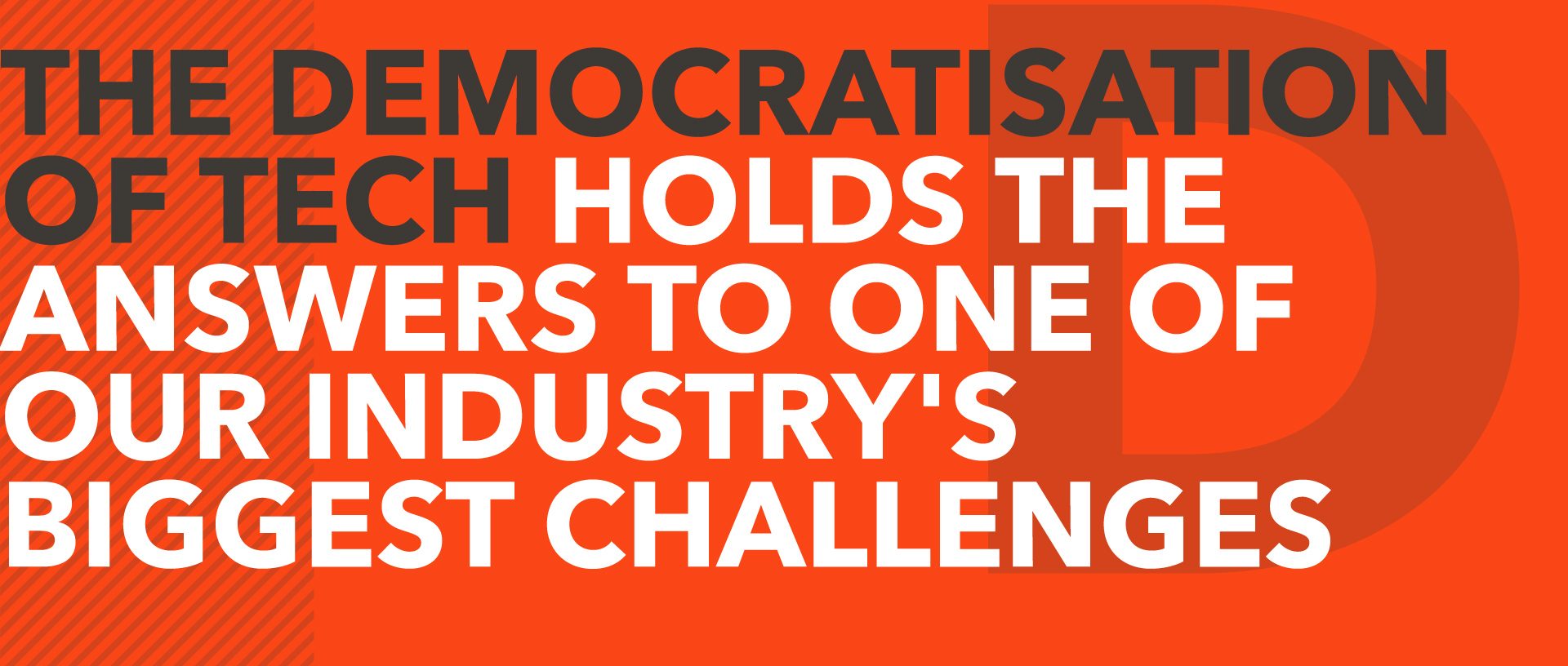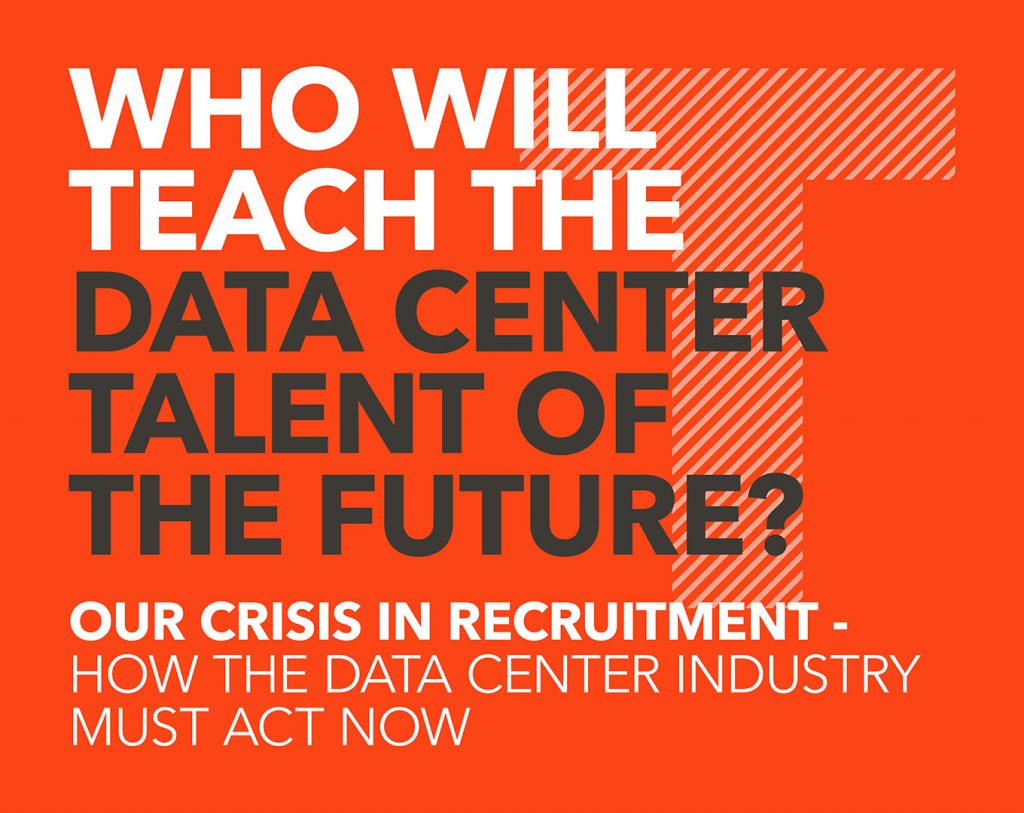The democratisation of tech holds the answers to one of our industry’s biggest challenges
By: Johandri Kieck

The democratisation of tech is opening up the data center market – an industry once reserved for highly skilled specialists – and making it accessible to more people than ever before.
Now, people from different backgrounds and skill levels can enter data center operations.
This change couldn’t have come at a better time because I believe it contains the solution to the biggest challenge our industry currently faces.
The data center recruitment crisis
The industry has experienced rapid growth in recent years and demand is only going to increase as time goes on.
Before this sudden expansion the market was relatively small. The workforce was appropriately matched to the size of the industry and people were never short of work.
Then the market blew up and suddenly everyone wanted to make use of data center services. Now, even pension funds are investing in data center facilities.
The problem we face is that the workforce hasn’t grown alongside the industry. We failed to bring in fresh talent, particularly younger people, and now every new contract has everyone pulling from the same small pool of talent (which is now closer to retirement age than graduate age).
We must do something about this now or we will soon find ourselves unable to meet the increasing demands of the industry.
If we faced this problem a decade ago we wouldn’t stand a chance of coming out on top. We wouldn’t have been able to train people to the required skill level in time. But thanks to the democratisation of tech, we can swiftly move people into the industry and train them up on the job. This is a key focus in my role as Yondr’s learning and development manager.
So simple a child could do it
At Yondr, we strive for simplicity; simplicity in design, simplicity in communication and simplicity in process and procedure.
In the operational world of a data center facility there’s no room for error. It’s a high-risk environment where nothing can be left to chance. We follow processes and procedures that have been tried and tested. Our engineering procedures are written with such clarity that you could bring your child in and they’d be able to follow them. There’s no hiding behind clever jargon or fluffing up the language to make it sound complicated or intelligent. They are written so you can follow the instructions and have confidence in the outcome.
This means you don’t have to be an IT whizz kid or the proud owner of a PhD to work in the data center environment. You do, however, need to be able to follow orders and repeat procedures with absolute precision.
As well as our focus on simplicity, there’s a huge amount of tech involved in monitoring our systems and products. Having this technology in place allows us to use our finite workforce more widely.
During the COVID-19 lockdown we had to dramatically reduce the amount of people we had on site. On a normal day you’d find around 20 engineers running around at any one time. By using the technology at our disposal we were able to remotely monitor all the critical equipment and provide the same level of uptime as we would if we were there in person.
This illustrates just how far tech has progressed. Had the pandemic hit even five years ago we’d be looking at a very different story.
Creating tomorrow’s workforce today
There is an urgent need to recruit and build the data center talent pool of tomorrow. Thanks to the democratisation of tech and Yondr’s insistence on simplicity, we have a much broader range of candidates to choose from.
As we look to recruit moving forward, our focus will be on finding people with the right mindset who we can bring in and train on the technical side of things.
Discipline will be an essential requirement for anyone looking to enter the industry. As I mentioned earlier, a functioning data center relies heavily on process and procedure. We need people who possess the discipline, self-control and attention to detail to repeatedly carry out the same routines without error.
There’s no room for egos in our environment. The industry doesn’t cater to them and they never last long. Instead, we will look for people who take pride in their work, care about quality and want to do a good job day in, day out. We want to work with people who are humble, honest and have the integrity to do the right thing even when no one is watching. If we can find candidates with those characteristics it will be a pleasure to teach them the rest.
Pulling talent from different disciplines
Now that our focus is on mindset rather than skill set we can recruit people from many different disciplined industries. We no longer have to look solely to the university graduates.
Ex-military people have proven to be a perfect fit for our industry. They are good at following processes and carrying out procedures, plus they don’t mind the routine and repetition that some people find challenging. The vast majority of veterans leave the military in their thirties, meaning they could potentially give you twenty-five years of service once you’ve trained them up.
We can also recruit from other disciplined professions, such as pharmaceutical workers, aerospace engineers and hospital staff, as they see their roles cut due to tech automation.
The mining and petrochemical industries are on the decline now that the world is pushing for green solutions to everything that causes harm to the environment. The workforce from these markets will be well-versed in following process and procedure and no doubt make great contenders for transitioning into a data center facility.
And finally, we mustn’t forget about young people. As an industry we have neglected to bring on younger talent for far too long. This has to stop.
Data center owner-operators have to start funding apprenticeships for young people. We need marketing campaigns that appeal to both sexes and people from a diverse range of backgrounds. The campaigns must make young people aware that an apprenticeship may suit them better than a university education. And we must make them aware that the data center world isn’t just for IT geeks, it offers a diverse range of hands-on, craft-based roles.
Our industry’s rise to prominence created a problem we would previously have been unable to solve. But thanks to the greater accessibility of tech, I believe we have the potential to create a powerful pool of talent that will maintain and operate our data center facilities far into the future.



